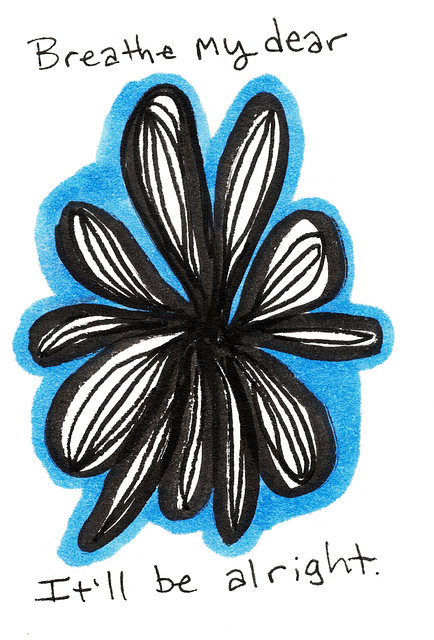Developing marketing strategies for Littleton Chronic Pain Therapy apps requires understanding the diverse needs of their target audience—individuals managing chronic pain, including single parents, working professionals, and retirees. By combining Mind Over Matter principles with educational programs on mental health awareness, these apps empower users while offering tailored solutions, successful stories, progress tracking, real-time support, and community engagement. A multi-channel marketing approach, leveraging social media, email, and targeted ads, enhances visibility and engages users seeking effective chronic pain management in Littleton.
In today’s digital age, mental wellness apps are gaining traction as essential tools for managing chronic pain. This article delves into a comprehensive marketing strategy development for Littleton Chronic Pain Therapy app, focusing on understanding its target audience, crafting a unique value proposition, and implementing a multi-channel marketing approach for optimal reach and engagement. By exploring these key areas, the app can effectively attract and retain users seeking effective chronic pain management solutions.
- Understanding Target Audience for Mental Wellness Apps
- Crafting a Unique Value Proposition for Littleton Chronic Pain Therapy
- Multi-Channel Marketing Strategy for Optimal Reach and Engagement
Understanding Target Audience for Mental Wellness Apps

Understanding your target audience is a cornerstone when developing marketing strategies for mental wellness apps like Littleton Chronic Pain Therapy. The app’s users are likely individuals facing chronic pain, looking for alternative or complementary solutions to manage their condition. This demographic may include people with diverse backgrounds, ages, and levels of technological proficiency. Some might be struggling single parents, working professionals, or retirees seeking ways to improve their quality of life.
By incorporating Mind Over Matter principles and resilience-building techniques into marketing campaigns, the app can appeal to users’ desire for empowerment and self-improvement. Educational programs designed around mental health awareness and coping strategies can also attract those eager to learn new skills for managing stress and pain. Tailoring content to address these specific needs will ensure that marketing efforts resonate with the intended audience, fostering trust and a sense of community around the app’s unique value proposition.
Crafting a Unique Value Proposition for Littleton Chronic Pain Therapy

In the competitive landscape of mental wellness apps, crafting a unique value proposition is essential for standing out, especially in niche areas like Littleton Chronic Pain Therapy. To differentiate itself, an app should focus on providing targeted solutions tailored to individuals experiencing chronic pain in Littleton. This involves integrating evidence-based practices and Mind Over Matter principles to empower users with effective self-care tools. By offering personalized routines, meditation techniques, and coping strategies specifically designed to manage chronic pain, the app can attract and retain a dedicated user base seeking relief.
Moreover, highlighting successful stories and testimonials from Littleton residents who have found respite through the app’s programs can build trust and credibility. Incorporating features that track progress, offer real-time support, and foster a sense of community among users will further enhance engagement. Ultimately, a unique value proposition for Littleton Chronic Pain Therapy should combine specialized content, practical self-care practices, and a supportive environment to address the specific needs of individuals navigating chronic pain in their daily lives.
Multi-Channel Marketing Strategy for Optimal Reach and Engagement

In today’s digital age, a multi-channel marketing strategy is essential for reaching and engaging users effectively, especially within niche markets like Littleton Chronic Pain Therapy. By employing various channels such as social media, email campaigns, and targeted online advertising, mental wellness apps can expand their reach significantly. For instance, utilizing platforms like Instagram and Facebook allows for visually appealing content showcasing success stories or tips related to self-awareness exercises and mindfulness meditation. These visual elements cater to a wide audience, encouraging engagement through comments and shares.
Moreover, incorporating emotional healing processes into the marketing narrative fosters trust and connection. Through blog posts, videos, or podcasts, users can learn about the app’s ability to facilitate emotional healing, making it more relatable and appealing. Combining these strategies ensures optimal exposure, targeting both those actively searching for solutions and those unaware of their need for mental wellness support, like those grappling with chronic pain in Littleton.
Developing an effective marketing strategy for mental wellness apps requires a deep understanding of the target audience, crafting a compelling unique value proposition, and leveraging multi-channel approaches. By focusing on these key aspects, such as highlighting the benefits of Littleton Chronic Pain Therapy, you can ensure your app reaches and engages the right users. This comprehensive strategy not only increases visibility but also fosters trust and adoption among those seeking mental wellness solutions.














